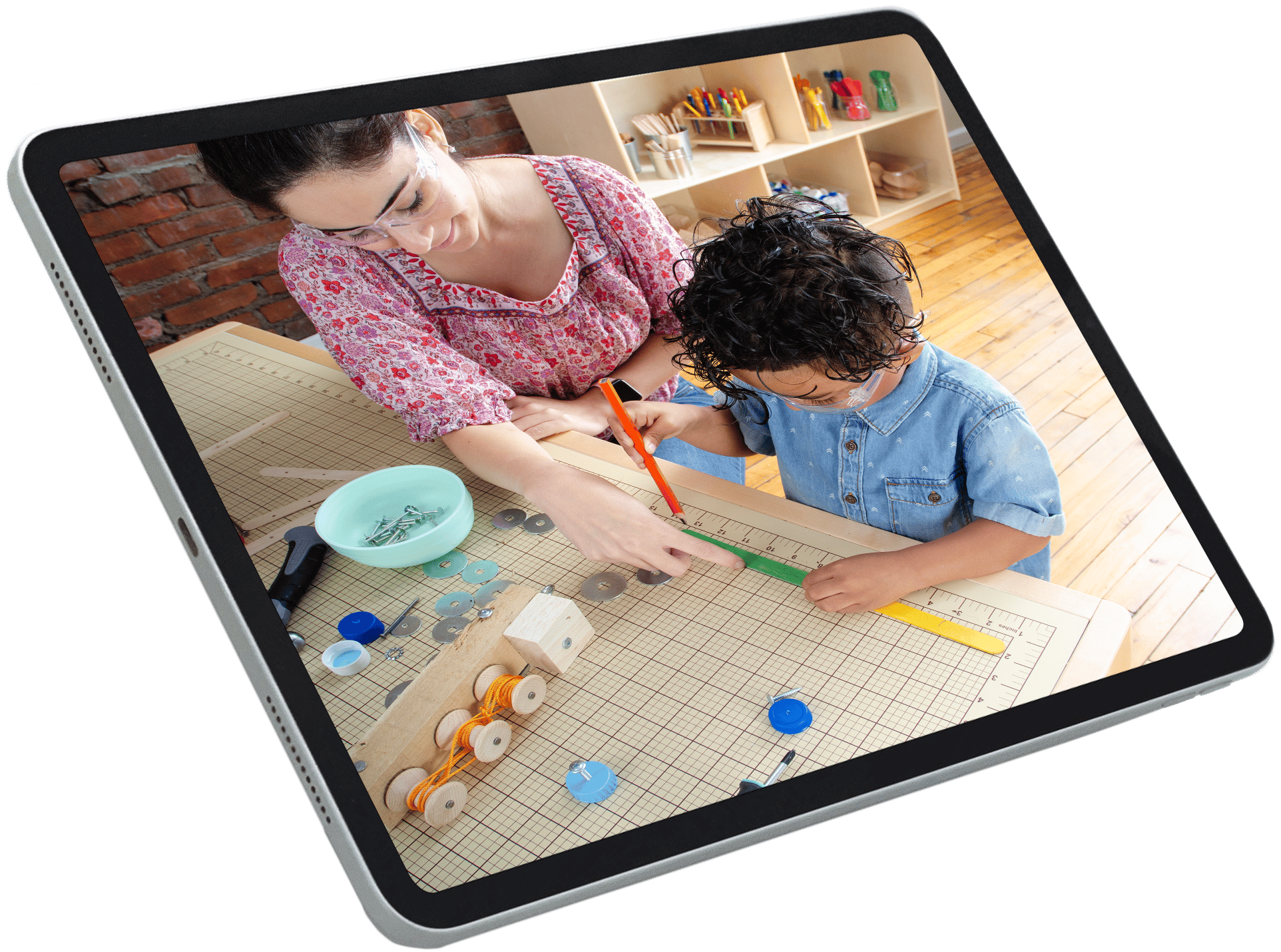
Do you consider yourself to be a resilient person? Being able to bounce back from change or misfortune is an important life skill that both children and adults need to learn, develop, and maintain for social and emotional health. Resilience is likely already a part of the curriculum and lessons you teach your students, but is it something you work on developing and maintaining as an adult and caregiver?
If you want to learn more about your personal strengths and discover how to increase your resilience, Mary Mackrain and Nefertiti Bruce Poyner's Building Your Bounce: Simple Strategies for a Resilient You is an excellent resource. The book contains a reflective checklist of 23 items and focuses on four protective factors (relationships, internal beliefs, initiative, and self-control) to promote adult resilience. Building Your Bounce shares a number of strategies to help you work on strengthening your relationships, supporting your internal beliefs, increasing your initiative, and maintaining your self-control:
1. Relationships
- If you don't feel like you have good friends who support you, try creating a personal want ad. Once you've created your ad, take it out every now and then and reflect on the information you've provided. This will help you maintain positive relationships and look for friends who can provide the support you need. Here are a few things you might want to include in your ad:
- In a relationship, I need a person who is…
- I want a person in my life who accepts me when I…
- When I am with this person, I expect to…
- If you need to work on supporting others more, one strategy you could use is choosing a family member of the week. Ask everyone else in the family to do special things for that person every day that week. It doesn't have to be anything big—it could be something as simple as extra hugs or making his or her favorite breakfast or dessert.
2. Internal Beliefs
- Do you recognize and remember your personal strengths, or are you too focused on what you can't do? One way you can build yourself up is by counting compliments. Write down every compliment you receive for a week, and then reflect on how each compliment made you feel and how you responded. It's also important that you take time to compliment yourself and practice making positive statements about yourself in your mind and out loud.
- Having a sense of hope is essential to how you feel about the future. If you're feeling down, grow your gratitude by paying attention to the small positive things that happen each day. Making a list of what you are grateful for can also help you feel more hopeful about the future.
3. Initiative
- If you struggle with communicating effectively with the people around you, try writing out your thoughts and sending them by email or text message.
- Do you seek out new knowledge? An easy way to learn something new would be to read an interesting article in your local newspaper or on the paper's website. Other good options include subscribing to professional journals or attending conferences, workshops, or other educational events.
4. Self-Control
- If you struggle to set limits for yourself, try giving yourself a time out to reflect on your successes and daydream. Taking time to read a book or do something you enjoy will help you feel reenergized and help you be more emotionally healthy. Another great option is to make a "One Day at a Time" list of things you need to do each day.
- If you have trouble calming yourself down, it's important that you find the right strategy that works for you. Counting to ten, practicing deep-breathing techniques, and meditation are a few strategies that may help you learn to calm yourself down.
Be sure to read Building Your Bounce for additional strategies. You can also read "Teachers, Build Your Bounce!" on the Kaplan Blog for more information about the Devereux Adult Resilience Survey (DARS) and for definitions of the four protective actors.
